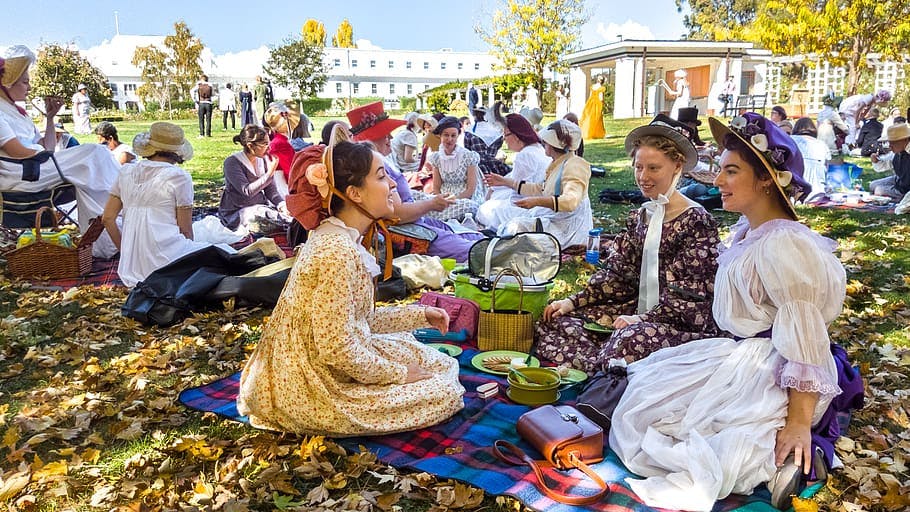Picnic Day in Australia
Picnic Day in the Northern Territory celebrates community spirit with outdoor activities, cultural performances, and family-friendly festivities.
Introduction
Picnic Day in the Northern Territory (NT) is a cherished public holiday that captures the essence of community spirit, leisure, and cultural celebration. Observed annually on the first Monday of August, this unique holiday offers residents and visitors alike an opportunity to relax, unwind, and partake in a range of festivities, events, and activities that showcase the Territory's vibrant culture, heritage, and lifestyle. This article delves into the origins, significance, traditions, celebrations, and contemporary relevance of Picnic Day in the Northern Territory.
Historical Origins
The origins of Picnic Day in the Northern Territory can be traced back to the late 19th and early 20th centuries when workers and families sought respite from their daily routines, labour-intensive jobs, and the region's harsh climatic conditions. Recognizing the need for a communal day of leisure, relaxation, and recreation, local communities, businesses, and organizations advocated for the establishment of a public holiday that celebrated the Territory's unique lifestyle, culture, and traditions.
- First Observance: The inaugural Picnic Day was celebrated in the early 20th century, marking a significant milestone in the Northern Territory's social and cultural landscape. Over the years, Picnic Day evolved into a highly anticipated annual event, reflecting the Territory's resilience, diversity, and community spirit.
- Cultural Significance: Picnic Day holds cultural significance for residents of the Northern Territory, fostering a sense of belonging, identity, and pride among individuals, families, and communities. The holiday celebrates the Territory's rich history, Indigenous heritage, multicultural influences, and unique way of life, making it a symbol of unity, solidarity, and shared values.
Traditional Celebrations
- Outdoor Activities: Picnic Day epitomizes the Northern Territory's love for outdoor activities, adventure, and exploration. Families, friends, and communities gather at parks, beaches, reserves, and outdoor venues to enjoy picnics, barbecues, sports, games, and recreational activities that promote health, well-being, and community engagement.
- Cultural Performances: Picnic Day showcases the Northern Territory's vibrant cultural scene through Indigenous performances, music, dance, art, and storytelling. Local artists, musicians, dancers, and cultural groups participate in events, festivals, and celebrations that highlight the Territory's Indigenous heritage, traditions, and contributions to Australian culture.
- Community Events: Communities across the Northern Territory organize a myriad of events, festivities, and gatherings on Picnic Day, including parades, markets, fairs, exhibitions, and competitions that showcase local talent, creativity, and innovation. These community events foster connections, collaborations, and partnerships among individuals, organizations, and stakeholders, enhancing social cohesion and community development.
Contemporary Relevance and Modern Celebrations
- Family-Friendly Activities: Picnic Day continues to resonate with families, children, and individuals seeking family-friendly activities, entertainment, and experiences. Modern celebrations include family picnics, children's activities, amusement rides, petting zoos, face painting, and interactive workshops that cater to diverse age groups and interests.
- Culinary Delights: Food plays a central role in Picnic Day celebrations, reflecting the Territory's culinary diversity, gastronomic richness, and outdoor dining culture. Families, communities, and food enthusiasts enjoy picnics, barbecues, food stalls, pop-up restaurants, and culinary events featuring local produce, traditional dishes, multicultural cuisines, and festive treats.
- Environmental Awareness: As environmental consciousness grows, Picnic Day provides an opportunity to promote sustainability, conservation, and eco-friendly practices. Community groups, organizations, and stakeholders organize environmental initiatives, clean-up activities, tree planting, and conservation projects that protect the Territory's natural environment, wildlife, and ecosystems.
Conclusion
Picnic Day in the Northern Territory is more than just a public holiday; it's a celebration of community spirit, cultural diversity, leisure, and lifestyle that defines the Territory's unique identity and character. From its historical origins and traditional celebrations to contemporary relevance and modern festivities, Picnic Day resonates with residents, visitors, and communities across the Northern Territory. As the Territory continues to evolve and grow, Picnic Day remains a symbol of unity, solidarity, and shared values that unite individuals, families, and communities in celebration, reflection, and appreciation of the Northern Territory's rich heritage, culture, and way of life.
